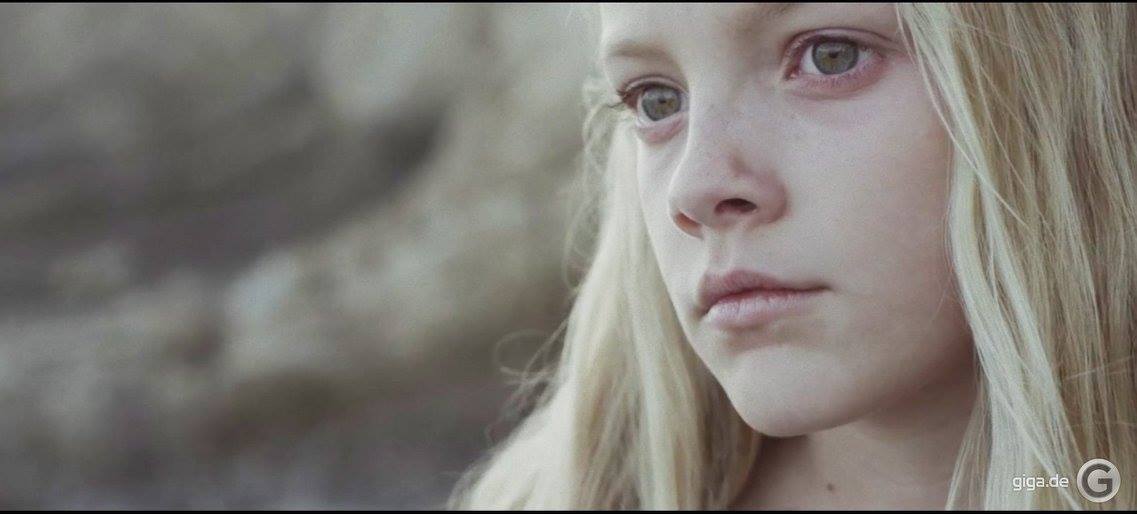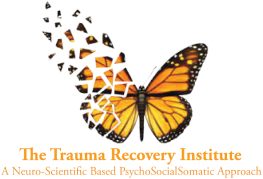06 Oct Conscious Parenting Ireland
Conscious parenting is parenting through connection instead of coercion, through love instead of fear.Conscious Parenting recognizes that securing and maintaining a healthy parent-child bond is our primary work as parents and the key to our children’s optimal human development. Our effectiveness as parents is in direct proportion to the strength of the bond we have with our child. Connection Parenting promotes parenting practices that support a strong, healthy parent-child bond.The Latest Neuroscience now confirms attachement theory and the critical importance of the parent child attachment, This above all will influence the appropriate brain development of your child and influence the adult your child will become.
The model of parenting most of us grew up with was authoritarian parenting, which is based on fear. Some of us may have grown up with permissive parenting, which is also based on fear. Authoritarian parenting is based on the child’s fear of losing the parent’s love. Permissive parenting is based on the parent’s fear of losing the child’s love. Connection parenting is based on love instead of fear. Connection Parenting recognizes that securing and maintaining a healthy parent-child bond is our primary work as parents and the key to our children’s optimal human development. Our effectiveness as parents is in direct proportion to the strength of the bond we have with our child. Connection Parenting promotes parenting practices that support a strong, healthy parent-child bond.
Both authoritarian parenting and permissive parenting are reactive. Connection parenting is proactive. Rather than focusing on ways to discipline children when their feelings of disconnection result in uncooperative or unacceptable behavior, Connection Parenting focuses on ways to maintain and increase the parent-child bond/connection. Connection parenting is an ideal, a navigation star we can look to for guidance. Whenever we question how to respond to a child we can ask ourselves, will this response create a connection or a disconnection. We feel connected when we feel listened to and loved. We feel disconnected when we feel hurt and unheard. Sometimes a child’s behavior will push our buttons and we react rather than respond. As soon as we realize we have created a disconnect, we can reconnect by doing the following:
Rewind – Acknowledge we have said or done something hurtful
Repair – Apologize and ask for forgiveness
Replay – Respond with love and listening
Even if we can’t parent in the most nurturing ways all the time, the more often we can, the more our children get what they need, the better they will be able to weather the times when we parent in less nurturing ways. The Following are some essential truths of Conscious Parenting, however conscious parenting is promoting awareness, educating and empowering. Conscious parenting is not about punishing ourselves for mistakes we have made as parents or for those times our own unresolved trauma got the better of us and created a disconnection with ourselves and our children. We now know that it is never too late to created a secure attachment with our children, our brains have the ability to change throughout our life span.
[fusion_builder_container hundred_percent=”yes” overflow=”visible”][fusion_builder_row][fusion_builder_column type=”1_1″ background_position=”left top” background_color=”” border_size=”” border_color=”” border_style=”solid” spacing=”yes” background_image=”” background_repeat=”no-repeat” padding=”” margin_top=”0px” margin_bottom=”0px” class=”” id=”” animation_type=”” animation_speed=”0.3″ animation_direction=”left” hide_on_mobile=”no” center_content=”no” min_height=”none”]
1 A baby, nurtured in the womb of a healthy, happy, and peaceful mother, receives the best possible start in life.
2 The more aware caregivers are of their own birth-related trauma and unmet childhood needs, the better they are able to respond to the needs of children in their care.
3 What happens in the earliest stages of life—at conception, in the womb, at birth, and in the first days and months—establishes the foundation for life. A happy, low-stress pregnancy, natural birth, and an uninterrupted period of bonding through the early months greatly benefit both baby and parents.
4 Breastfeeding, skin-to-skin contact, and being carried on the body—in-arms, slings, etc.—are critical for brain, nervous system, and immune system development and promote long-term health benefits for both baby and mother.
5 All babies are dependent on others to meet their physical, emotional, intellectual, and spiritual needs. When their needs are met with loving and consistent care, children are happier, healthier, and more cooperative.
6 Every baby is born with the desire to communicate, to cooperate, and to explore the world. Children learn primarily by unstructured play and by imitating those around them.
7 Every child needs to be securely bonded with at least one human being who is a loving and consistent presence in the child’s life.
8 Every child develops at a unique rhythm and pace. A child’s developmental processes are best supported when neither hurried nor forced.
9 Children are dependent upon their parents and caregivers to protect them from emotional and physical neglect, violence, abuse, and other toxic experiences, including hazards in their food, air, water, toys, and environment.
10 Children express their needs through behaviors that are shaped by their individual temperament, life experiences, and by how others behave and treat them.
11 The consistent, loving presence of a father or father-figure in a child’s life adds immensely to a child’s optimal development and wellbeing.
12 Children who have lost one or both of their biological parents, whether at birth or years later, naturally have feelings of abandonment and, therefore, have special needs. Foster, adoptive, and single parents face special challenges and benefit from extra support of family, friends, and community.
13 Children learn to respect, empathize with, and respond to the needs of others when they feel seen, heard, and their opinions are valued.
14 Effective parenting is an art that can be learned.
15 Families benefit from a supportive, nurturing community that values the art and science of parenting.
“The level of cooperation parents get from their children is usually equal to the level of connection children feel with their parents.”
Guiding Principles of Conscious Parenting
While we want to use our inner compass to keep ourselves on course, it also helps to know where we’re going. For that, a road map is essential, and for ours, we’ll be using eight guiding principles of conscious parenting.
Principle 1: All behavior is a communication. Behavior reflects the internal state of the individual and the relationship’s level of connection.
Principle 2: The parent-child relationship is more important than any behavioral intervention, consequence, or punishment.
Principle 3: Children unfold neurosequentially, and quality, connected relationships allow for the unfolding. A need met will go away; a need unmet is here to stay.
Principle 4: Behaviors occur on a continuum. Behaviors in children (and parents, too) correlate to the parents’ own neurodevelopment and attachment status.
Principle 5: Parental interpretation of behaviors comes from both a conscious and subconscious place, resulting in positive or negative neurophysiologic feedback loops.
Principle 6: All individuals have a right and a responsibility to learn to express their feelings appropriately. Feelings allow us to connect to our internal guidance system.
Principle 8: The Love Cup, We need to create communities of support for ourselves and for our children. We need to take care of ourselves so that we can take care of our children. If our love cup is empty, we will have nothing to give to our children and their needs will trigger our own trauma history when perhaps our own needs were not met. This can create Disconnection.
Dr. Maté speaking for the Healing our Children 2016 World Summit on why he believes that every disorder and disease has its roots in early childhood, why our culture hasn’t supported healthy childhood development for years, and what we can do about it. Dr. Mate confirms that raher than looking at the children’s behaviour we need to look at ourselves and explore what are our children communicating in relation to how we are in ourselves and in the relational space with our children.
Working with Unresolved Trauma at Trauma Recovery Institute
Trauma Recovery Institute offers unparalleled services and treatment approach through unique individual and group psychotherapy. We specialise in long-term relational trauma recovery, sexual trauma recovery and early childhood trauma recovery. We also offer specialized group psychotherapy for psychotherapists and psychotherapy students, People struggling with addictions and substance abuse, sexual abuse survivors and people looking to function in life at a higher level. Trauma recovery Institute offers a very safe supportive space for deep relational work with highly skilled and experienced psychotherapists accredited with Irish Group Psychotherapy Society (IGPS), which holds the highest accreditation standard in Europe. Trauma Recovery Institute uses a highly structured psychotherapeutic approach called Dynamic Psychosocialsomatic Psychotherapy (DPP).

Dynamic Psychosocialsomatic Psychotherapy (DPP) at Trauma Recovery Institute Dublin
Dynamic Psychosocialsomatic Psychotherapy (DPP) is a highly structured, once to twice weekly-modified psychodynamic treatment based on the psychoanalytic model of object relations. This approach is also informed by the latest in neuroscience, interpersonal neurobiology and attachment theory. As with traditional psychodynamic psychotherapy relationship takes a central role within the treatment and the exploration of internal relational dyads. Our approach differs in that also central to the treatment is the focus on the transference and countertransference, an awareness of shifting bodily states in the present moment and a focus on the client’s external relationships, emotional life and lifestyle.
Dynamic Psychosocialsomatic Psychotherapy (DPP) is an integrative treatment approach for working with complex trauma, borderline personality organization and dissociation. This treatment approach attempts to address the root causes of trauma-based presentations and fragmentation, seeking to help the client heal early experiences of abandonment, neglect, trauma, and attachment loss, that otherwise tend to play out repetitively and cyclically throughout the lifespan in relationship struggles, illness and addictions. Clients enter a highly structured treatment plan, which is created by client and therapist in the contract setting stage. The Treatment plan is contracted for a fixed period of time and at least one individual or group session weekly.

“Talk therapy alone is not enough to address deep rooted trauma that may be stuck in the body, we need also to engage the body in the therapeutic process and engage ourselves as clients and therapists to a complex interrelational therapeutic dyad, right brain to right brain, limbic system to limbic system in order to address and explore trauma that persists in our bodies as adults and influences our adult relationships, thinking and behaviour.”
[/fusion_builder_column][/fusion_builder_row][/fusion_builder_container]


Sorry, the comment form is closed at this time.